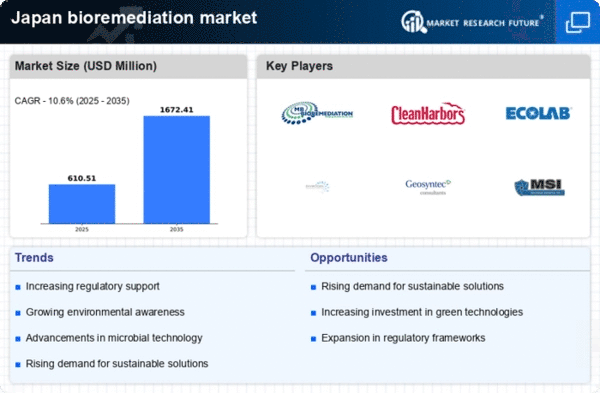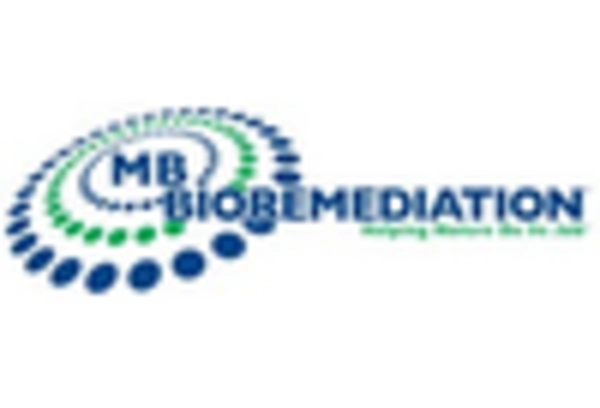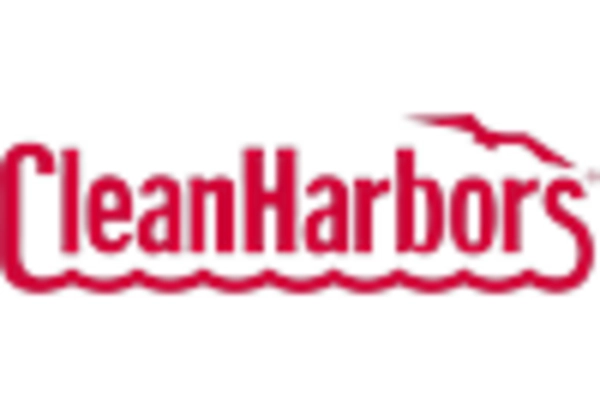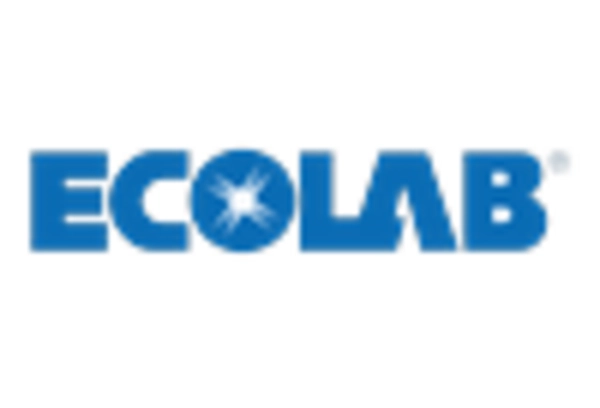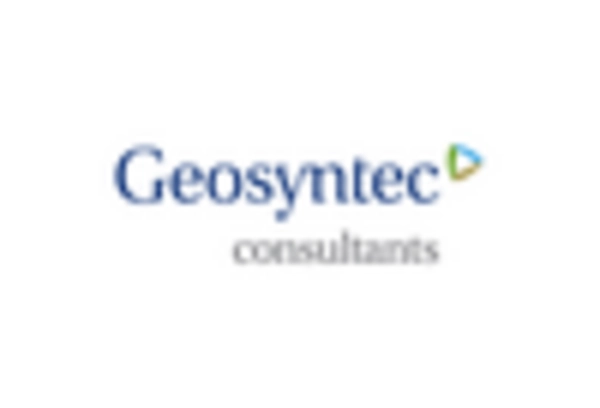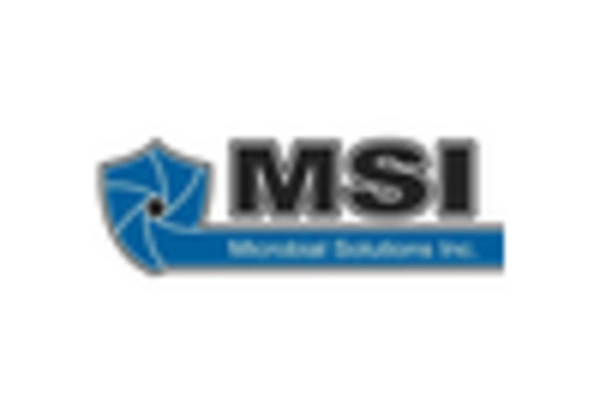Public-Private Partnerships
Public-private partnerships (PPPs) are emerging as a vital driver for the bioremediation market in Japan. These collaborations between government entities and private companies facilitate the sharing of resources, knowledge, and expertise, which can accelerate the implementation of bioremediation projects. In recent years, several successful PPPs have been established to address environmental challenges, leading to increased funding and support for bioremediation initiatives. For instance, a notable partnership in 2025 focused on the cleanup of contaminated industrial sites, resulting in a projected market growth of 15% in the bioremediation sector. Such collaborations not only enhance the effectiveness of bioremediation efforts but also promote innovation and sustainability within the industry.
Rising Industrial Waste Generation
Japan's rapid industrialization has led to a significant increase in waste generation, which is a crucial driver for the bioremediation market. Industries such as manufacturing, petrochemicals, and agriculture produce large volumes of hazardous waste that require effective treatment solutions. The bioremediation market is poised to benefit from this trend, as companies seek environmentally friendly methods to manage their waste. In 2024, it was estimated that industrial waste in Japan would reach 400 million tons, prompting a shift towards bioremediation technologies. This growing waste challenge necessitates innovative solutions, positioning bioremediation as a viable option for industries aiming to minimize their environmental footprint while adhering to regulatory requirements.
Investment in Research and Development
Investment in research and development (R&D) is a significant driver for the bioremediation market in Japan. The government and private sector are increasingly funding R&D initiatives aimed at enhancing bioremediation technologies. In 2025, it is projected that R&D spending in environmental technologies will exceed $1 billion, with a substantial portion allocated to bioremediation methods. This investment is likely to lead to the development of more efficient microbial strains and bioremediation processes, thereby improving the effectiveness of these solutions. As new technologies emerge, they may offer enhanced capabilities for treating contaminated sites, which could further stimulate market growth and attract more stakeholders to the bioremediation sector.
Environmental Regulations and Compliance
The stringent environmental regulations in Japan are a primary driver for the bioremediation market. The government has implemented various laws aimed at reducing pollution and promoting sustainable practices. As industries face increasing pressure to comply with these regulations, the demand for bioremediation solutions is likely to rise. In 2023, the Japanese government allocated approximately $500 million to support environmental cleanup initiatives, which directly benefits the bioremediation sector. Companies are now more inclined to invest in bioremediation technologies to meet compliance standards, thereby fostering growth in the market. This regulatory landscape not only encourages innovation but also enhances the overall effectiveness of bioremediation methods, making them a preferred choice for waste management and soil restoration.
Growing Awareness of Sustainable Practices
The increasing awareness of sustainable practices among businesses and consumers is a key driver for the bioremediation market in Japan. As environmental concerns gain prominence, companies are actively seeking sustainable solutions to mitigate their ecological impact. This shift in mindset is reflected in the rising adoption of bioremediation technologies, which are perceived as eco-friendly alternatives to traditional remediation methods. In 2025, surveys indicate that over 70% of Japanese companies are prioritizing sustainability in their operations, thereby driving demand for bioremediation services. This trend not only supports the growth of the market but also encourages the development of innovative bioremediation solutions that align with the principles of sustainability and environmental stewardship.


